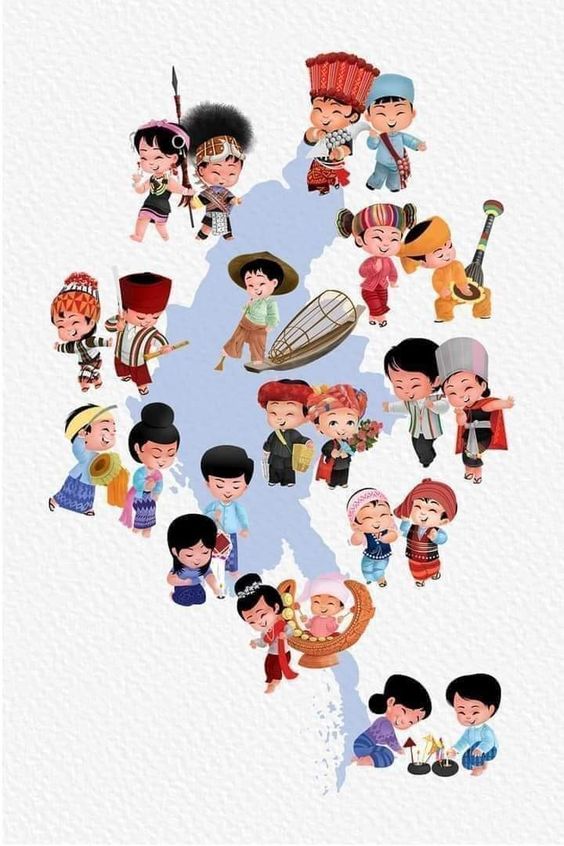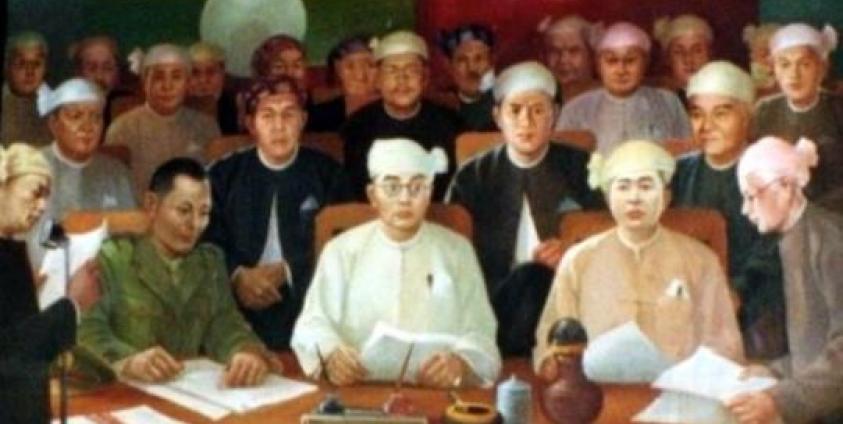Sai Wansai — Today is the Union Day 76th anniversary or the signing of Panglong Agreement without really being able to fulfil the aspirations of the people, particularly the non-Bamar ethnic nationalities.
This is none other than the inability to agree and accept the common national identity that will encompass all the peoples of different ethnic backgrounds residing within a multi-ethnic state called Burma or Myanmar.
In fact, nation-building has never taken place earnestly, whereas state-building has only been based on the institutionalised violence against the non-Bamar ethnic nationalities, by successive Bamar-dominated governments.
The problem lies in large part on the Bamar racial supremacy doctrine that have been instilled within the mindset of Bamar political elite and the Bamar military class, which treated the non-Bamar ethnic nationalities as subordinates.
But thanks to the Spring Revolution many of the Bamar resistance leaders started to understand the grievance of the non-Bamar ethnic nationalities, who have been under the oppression of the successive military regimes for decades, as the Bamar themselves are on the receiving end of military’s wrath for daring to rebel against its political monopoly stance.
Now we are in the midst of countrywide civil war due to the military junta’s unwillingness even to allow the quasi-civilian rule, with partial democratic rights, according to its self- drafted constitution.
It’s military coup in February 2021 is now two years old and the oppression of the people and its tyrannical rule are ongoing and nowhere in sight to end anytime soon.
The military is again playing the federalism card without really meaning to implement it. How on earth can a military-drafted constitution which is unitary in nature with built-in military supremacy provision can ever become federal?
In the same vein, the parallel National Unity Government (NUG) will also have to come up fast with a federal democratic union constitution that all ethnic groups can identify with and not just a charter or guidelines.
 Only then will the remaining ethnic resistance organisations (EROs) or ethnic armed organisations (EAOs) decide whether they want to join the war-time coalition-building or not. But not before the constitution is in place.
Only then will the remaining ethnic resistance organisations (EROs) or ethnic armed organisations (EAOs) decide whether they want to join the war-time coalition-building or not. But not before the constitution is in place.
But the reality is that only with the broad coalition-building or alliance of all ethnic groups within the the whole country can the task of uprooting the military dictatorship be achievable. In other words, the NUG has a special responsibility to fulfill as it ism considered to represent the majority Bamar population, which are up in arms for the first time on a nationwide scale.
In sum, the building of common national identity in a multi-ethnic state can be materialised through the agreeable federal democratic union constitution. This in turn may accelerate the war-time coalition-building militarily and politically among EROs, various political parties and civilian-based organisations, which may help uproot the military dictatorship and fulfill the vision of our forefathers and realise the true meaning of the Union Day or Panglong Agreement of 1947.
Finally, in order to achieve the second independence and lend the true meaning of the Union Day to its original intention, all forms of dictatorship will have to be uprooted through broad-based coalition-building among all ethnic groups by all means.
NOTE: A piece written by the same writer three years ago is attached to shed light on the historical facts concerning the Union Day or signing of Panglong Agreement in 1947.
https://www.bnionline.net/en/news/union-day-day-rejoice-or-mourn







